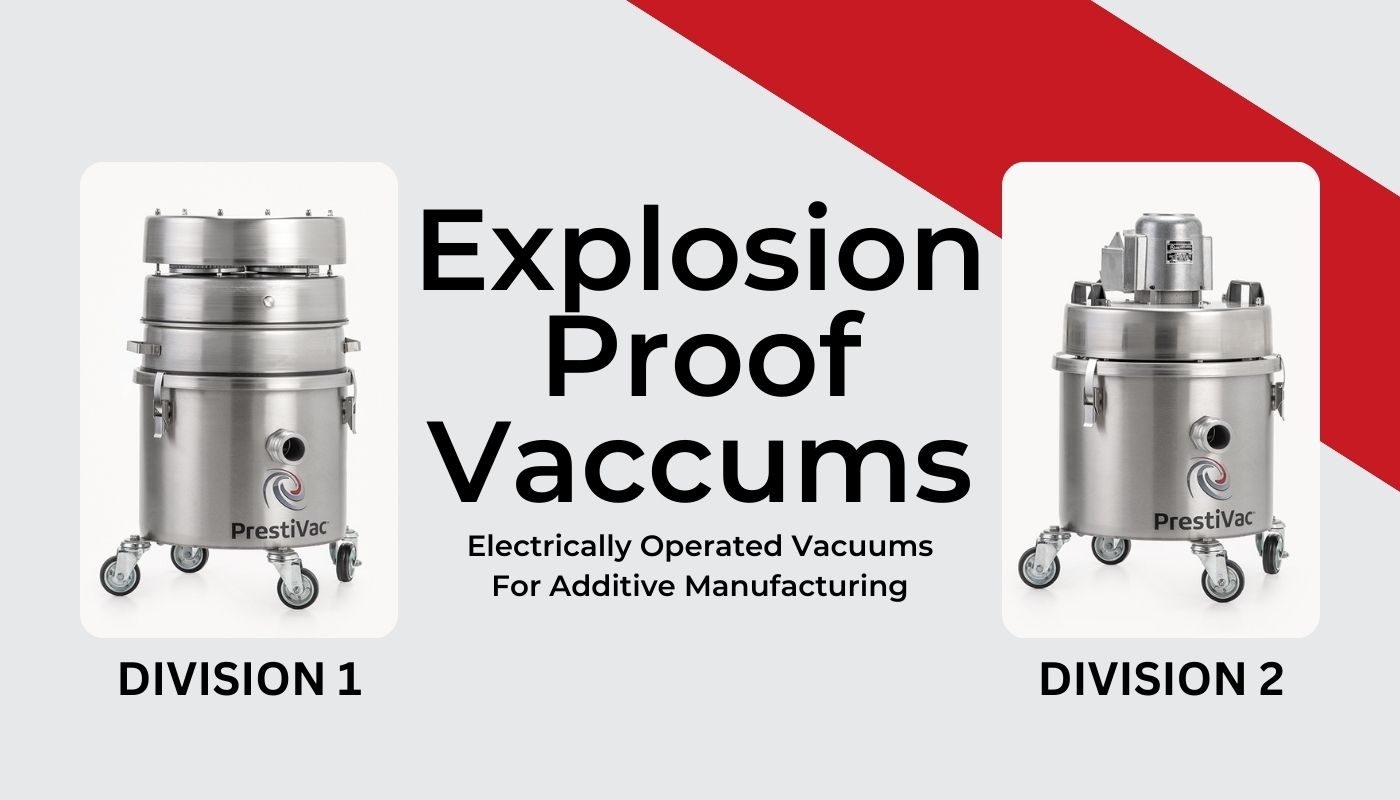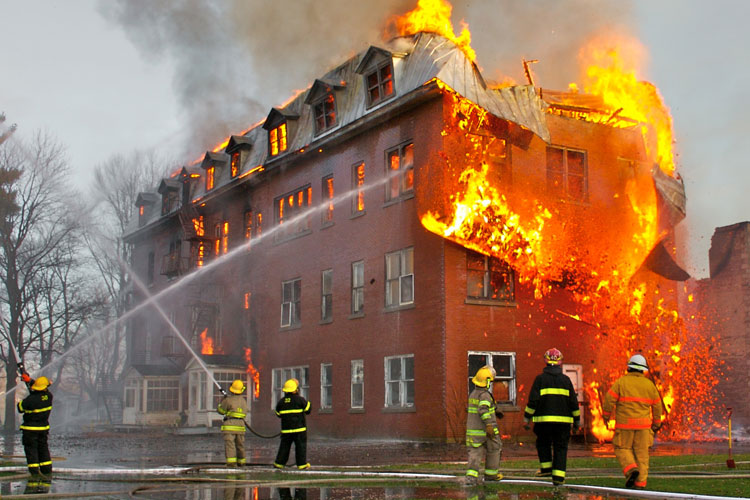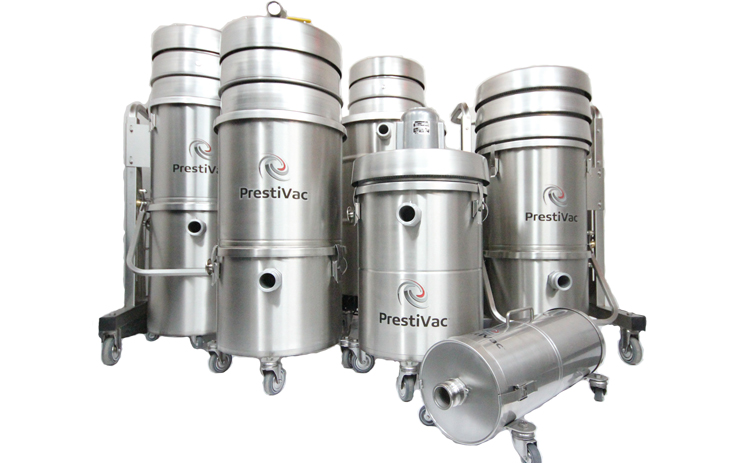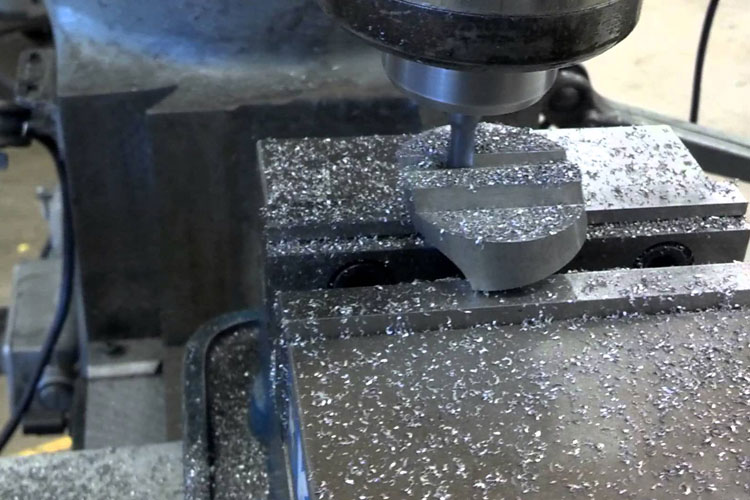A machine shop is a room, building, or company where machining is done. In a machine shop, machinists use machine tools and cutting tools to make parts, usually of metal or plastic, but sometimes of other materials such as glass or wood.
A machine shop can be a small business (such as a job shop) or a portion of a factory, whether a tool room or a production area for manufacturing. The parts produced can be the end product of the factory, to be sold to customers in the machine industry, the car industry, the aircraft industry, or others.
In other cases, companies in those fields have their own machine shops.
The production can consist of cutting, shaping, drilling, finishing, and other processes. The machine tools typically include metal lathes, milling machines, machining centers, multitasking machines, drill presses, or grinding machines, many controlled with CNC.
Grinding dust from abrasive wheels is made up of extremely fine particles of the metal and the wheel. Some grinding machines are equipped with a vacuum dust collector. When operating a grinder without a vacuum, wear an approved respirator to avoid inhaling the dust. Whenever possible, use coolant when grinding. This will aid in dust control. Grinding dust can be very dangerous to your health, especially beryllium or parts used in nuclear systems. These materials require careful control of grinding dust.
Metal Dust is Combustible and is an Explosion Hazard:
When most people think of controlling dust in the workplace, they think of taking steps to avoid inhaling dusts to prevent health problems. However, the accumulation of combustible dusts in the workplace can lead to far greater consequences. As seen in recent years, neglect of housekeeping and improper handling of combustible dusts can lead to property damage, injuries and loss of life.
During fabricating operations, metal fines may be generated by such activities as grinding, polishing, sawing, cutting, sanding or scratch brushing and at least some of them will be fine enough to be potentially explosive. The term “dust” or “powder” is frequently used to describe such particles.
The National Fire Protection Association (NFPA) defines a combustible dust as “a combustible particulate solid that presents a fire or deflagration hazard when suspended in air or some other oxidizing medium over a range of concentrations, regardless of particle size or shape.” In general, combustible particulates having an effective diameter of 420 μm or smaller, as determined by passing through a U.S. No. 40 Standard Sieve, are generally considered to be combustible dusts. However, agglomerates of combustible materials that have lengths that are large compared to their diameter (and will not usually pass through a 420 μm sieve) can still pose a deflagration hazard. Therefore, any particle that has a surface area to volume ratio greater than that of a 420 μm diameter sphere should also be considered a combustible dust. The vast majority of natural and synthetic organic materials, as well as some metals, can form combustible dust. The NFPA’s Industrial Fire Hazards Handbook states, “any industrial process that reduces a combustible material and some normally non-combustible materials to a finely divided state presents a potential for a serious fire or explosion.”
Suggested Industrial Vacuums for Recovery of Toxic & Combustible Dust
PrestiVac HEPAPlus* Vacuums are specifically designed to safely vacuum toxic dusts. Equipped with a Certified Absolute HEPAPlus*filter with an efficiency of 99.995% on 0.2 micron so there is no risk of exposure or contamination for the operator or the environment. These vacuums are tested for absolute filtration. Testing Method: IEST RP-CC034.3. H14. MIL-STD 282 / A.S.T.M. - D2986-91. MPPS method EN 1822.
PrestiVac Explosion Proof/Dust Ignition Protected Vacuums are designed to safely vacuum explosive, flammable, combustible conductive* dusts. Our Explosion Proof/Dust Ignition Protected Vacuums are completely grounded and static dissipating because they are built entirely with non-sparking metals and do not have any painted components so there is no risk of fire or explosion from a spark or static build up. All the electrical components, including the motor and starter are totally enclosed so there is no source of ignition. Our explosion proof vacuum cleaners comply with NFPA 484 guidelines and are an effective tool for good housekeeping practise as per OSHA.
- Dustless Sanding Vacuums
- Explosion Proof Division 1 Vacuums
- HEPA Vacuums
- Immersion Separator
- Immersion Separator Dustless Sanding Vacuums
Which Industries are associated with Machine Shops?













